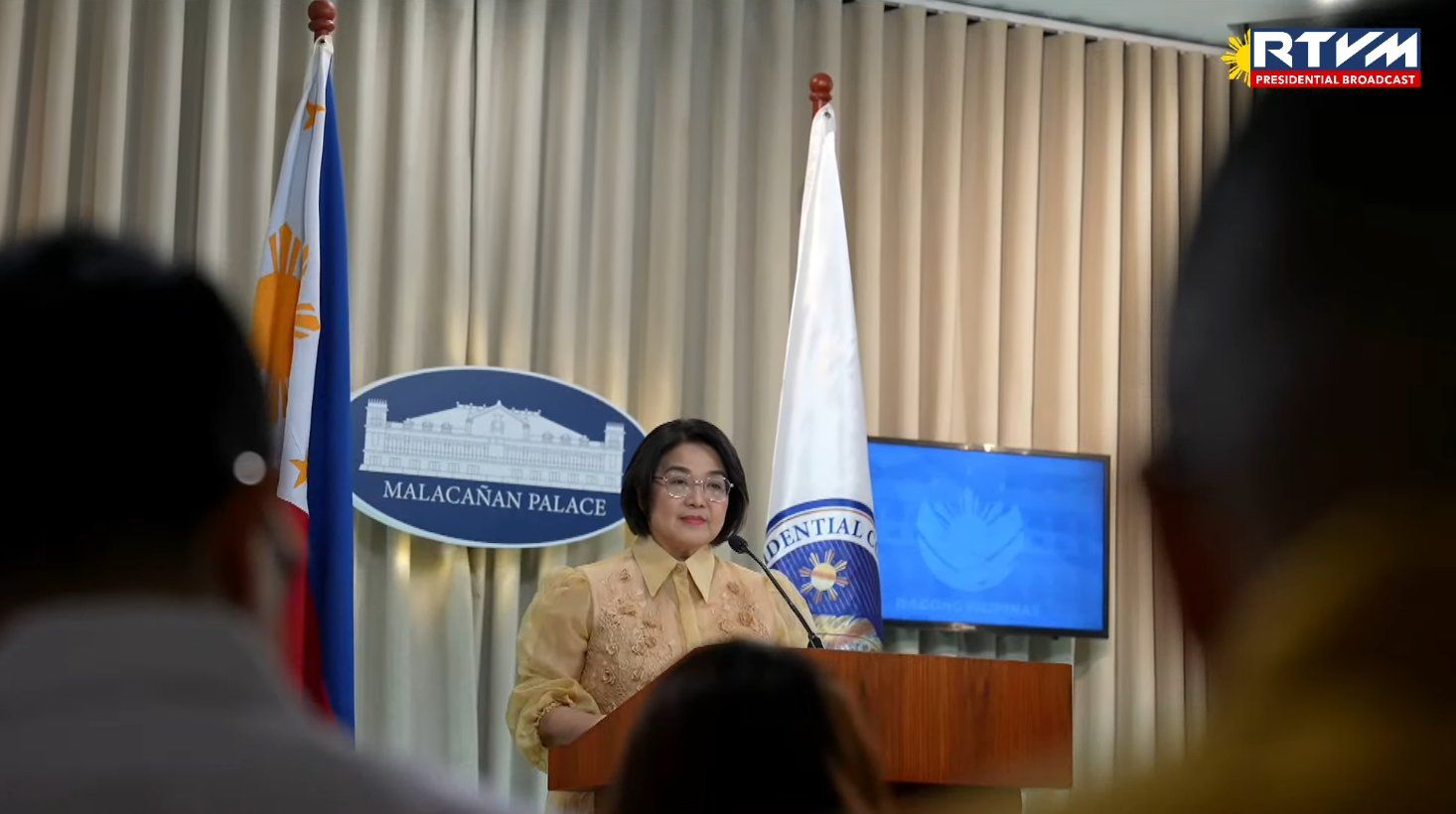Palace backs calls to give NFA more power to influence price movement of rice
At A Glance
- According to Castro, the NFA and the DA are unable to go directly to the farmers as they first have to go to LGUs.
Malacañang has agreed with calls to Congress to give the National Food Authority (NFA) more power and resources so it can buy 20 percent of local rice and influence its price in the market.

"I hope mapag-aralan muli ng Kongreso itong Rice Tariffication Act para po maayos din po at mabigyan po ng tamang authority ang NFA (I hope the Congress will take another look at the Rice Tariffication Act to fix the issue and to give the NFA proper authority)," Communications Undersecretary Claire Castro said on Wednesday, March 26.
"Maganda po sana po mabigyan muli ng authority ang NFA kasi nawalan po talaga sila ng power para po umangkat ng bigas (It's better if the NFA will again have the authority because they lost the power to buy rice)," she added.
According to the Palace Press Officer, the NFA and the Department of Agriculture (DA) are unable to go directly to the farmers as they first have to go to the local government units (LGUs).
"'Yan po yung medyo nagiging problema po, o nagiging isyu po, sa Department of Agriculture, ayun na rin po yan kay Secretary Kiko (That is the problem or issue faced by the DA, according to Secretary Francisco Tiu Laurel Jr.)," she said.
In a statement, Laurel said the NFA would need to procure some 20 percent of the local supply to address the issue and influence palay prices.
He added that the DA is grappling with a limited budget, stopping it from purchasing "significant" volumes from farmers and managing rice inventories through regular sales to the public as it was stripped of its regulatory powers.
According to the DA, the NFA has been purchasing palay at P18 per kilo for fresh harvests and P24 per kilo for clean, dry grains.
President Marcos had expressed support for moves to amend the Rice Tariffication Law (RTL), saying the government should have some form of influence on how rice is sold in the country.
In May last year, Marcos said the price of rice was increasing because the government had no control over it.
"Ang problema kasi kaya tumataas yung presyo ng bigas, dahil ang mga trader ay nagko-compete (The problem why the price of rice is increasing is because traders are competing)," he said.
"Pataasan sila ng presyuhan sa pagbili ng palay at wala tayong control doon (They want to buy rice at a higher price and we have no control over that)," he added.
Signed by former president Rodrigo Duterte in 2019, the RTL lifted quantitative restrictions on rice and introduced tariffs to protect local rice producers.
It established the Rice Competitiveness Enhancement Fund (RCEF), which enhances rice productivity and supports farmers. It also mandated the NFA to manage a buffer stock sourced solely from local farmers.